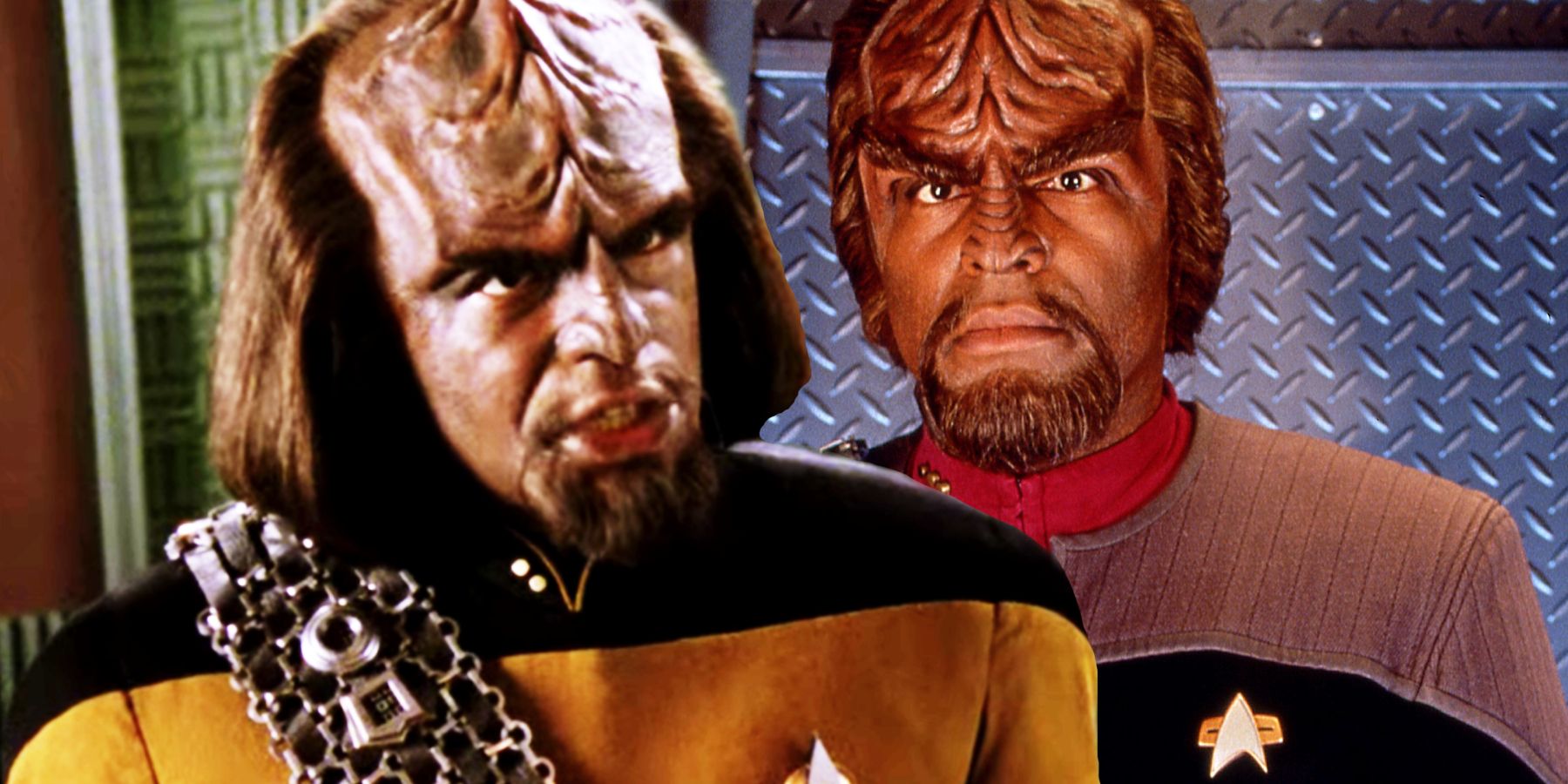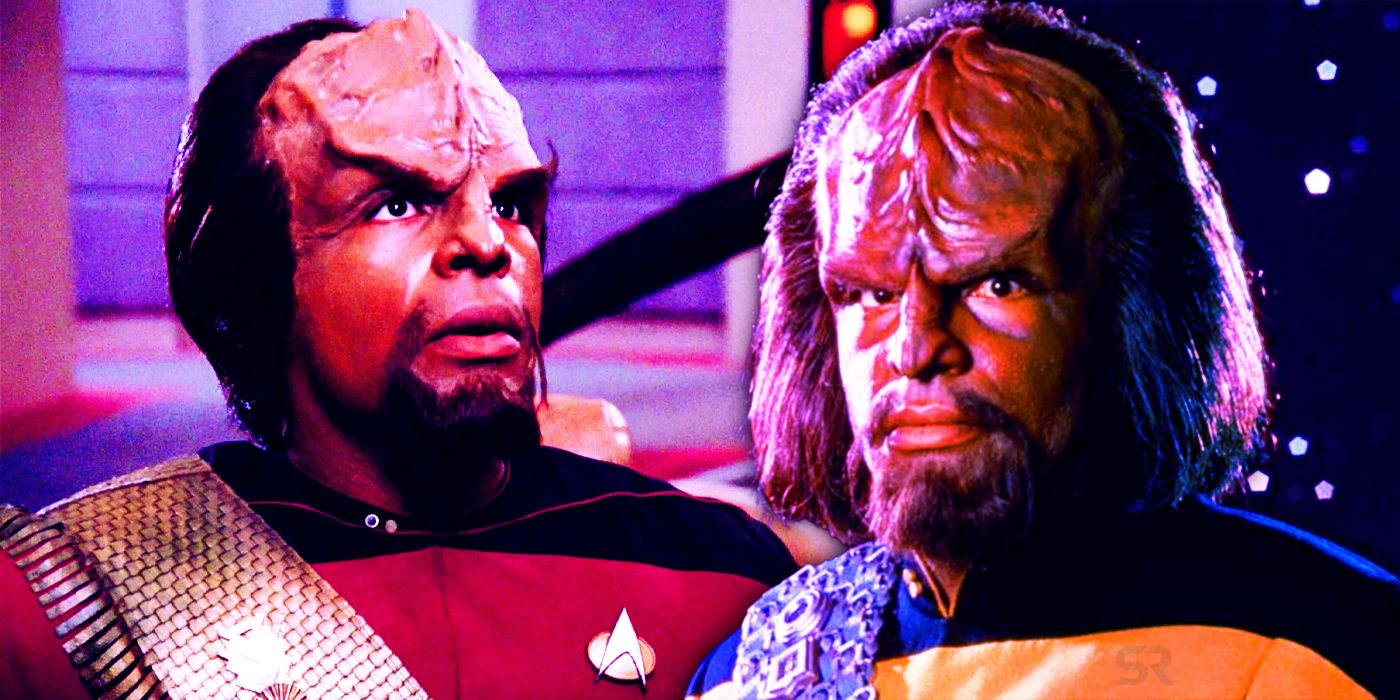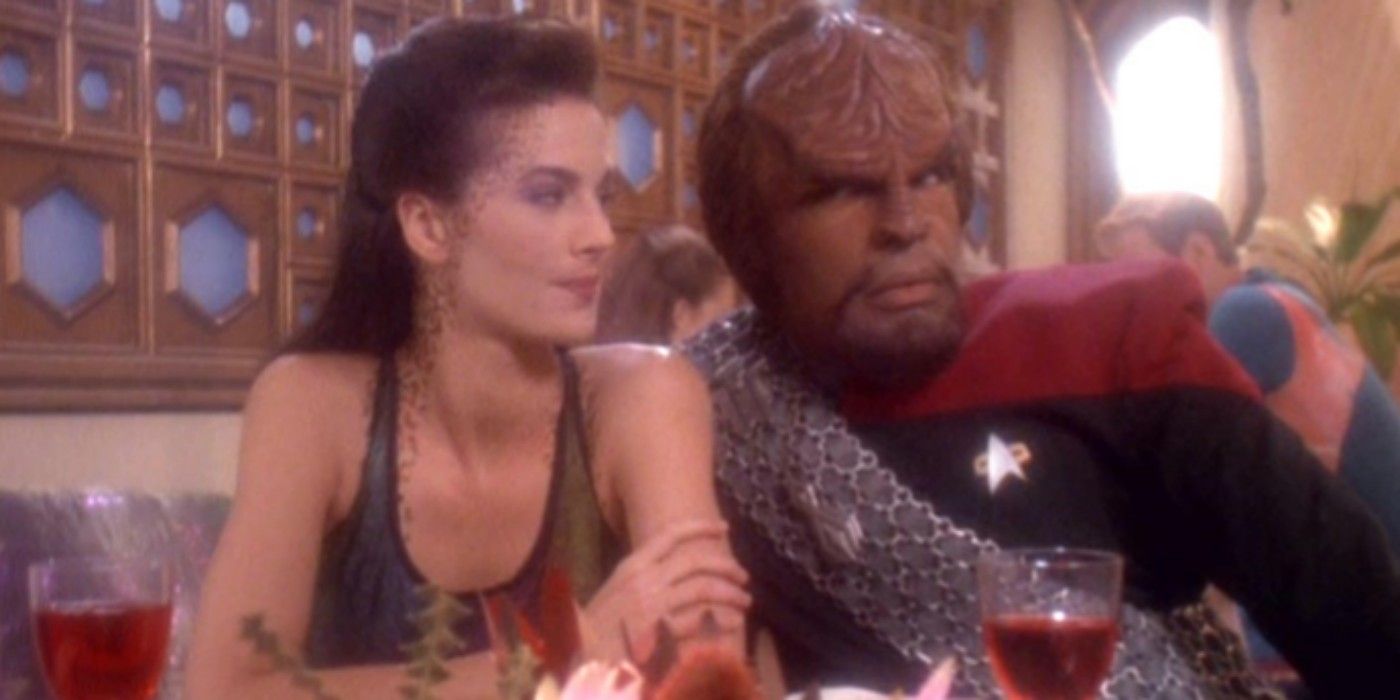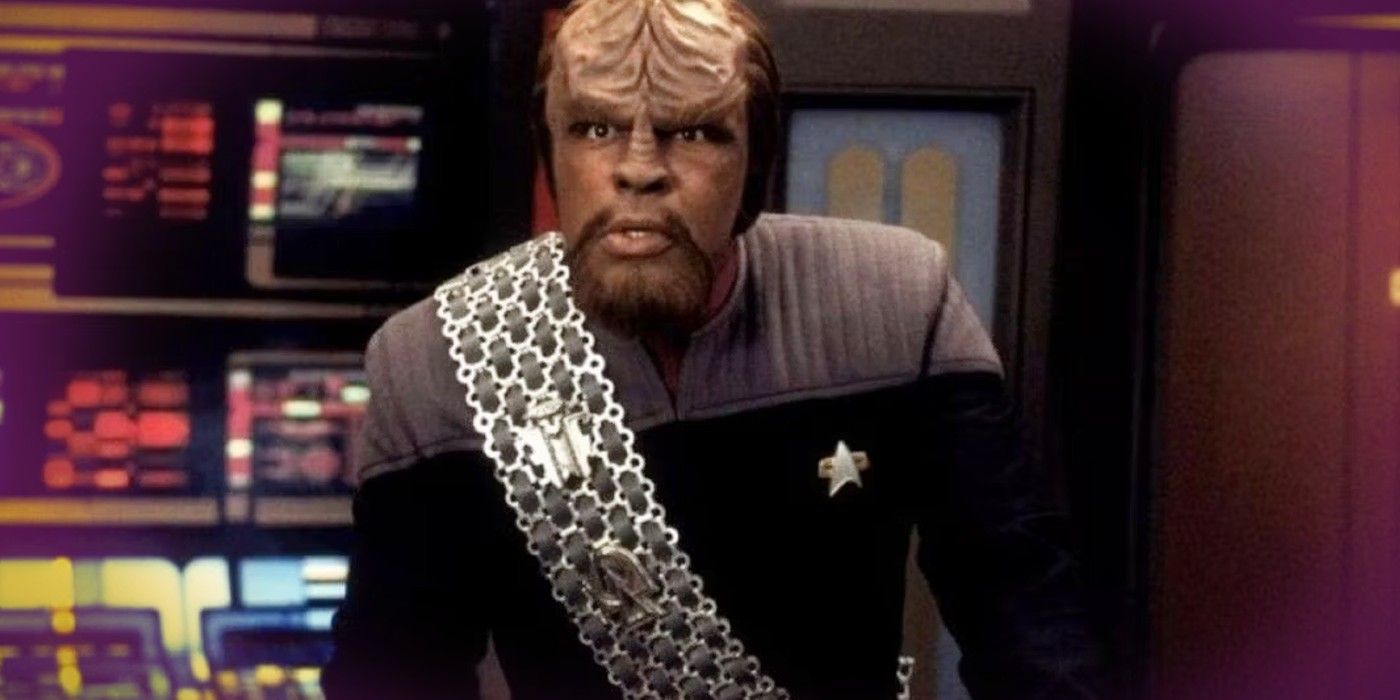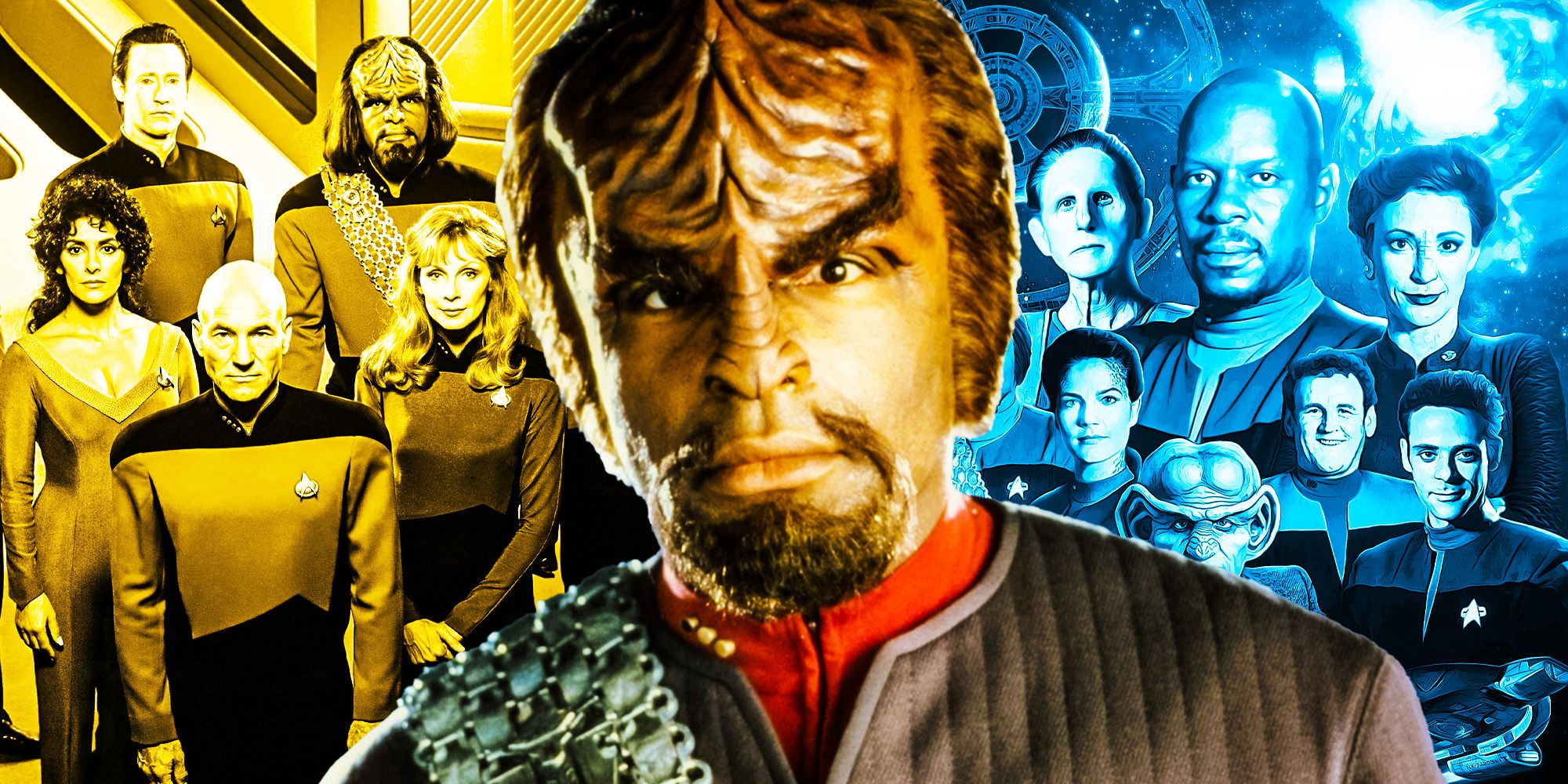Michael Dorn's Worf was a regular in both Star Trek: The Next Generation and Star Trek: Deep Space Nine but there's some debate over which show gave him the better story. Although he wasn't originally intended as a main TNG character, Worf has clocked up the most Star Trek appearances as a series regular. Worf's arc was one of the most satisfying Star Trek stories which took him from being a Klingon outlier in TNG to becoming a Federation ambassador to the Klingon Empire at the end of DS9.
As the Chief of Security aboard the USS Enterprise-D, Worf was often at the forefront of some of TNG's best episodes. However, the TNG movies mishandled the Klingon by largely ignoring his ongoing DS9 arc after Worf joined the cast of the spinoff series. The reasons for this were rooted in the schism between DS9 and TNG, but the films definitely neglected Worf as a character in a way that Worf's time on DS9 never did. Here's how both Star Trek shows handled Michael Dorn's beloved Klingon and which one out of TNG and DS9 treated Worf best.
How TNG Depicted Worf
Initially, Worf played a functional role in TNG. He was the means for both audiences and his fellow Enterprise crew members to understand the 24th century's Klingon Empire. As a Klingon orphan raised by adoptive human parents, Worf was the first Klingon in Starfleet, and he bridged the gap between the Federation and the Klingons. In TNG season 1, episode 20, "Heart of Glory", Worf's loyalties to Starfleet were challenged by the arrival of three renegade Klingon warriors. Worf chose to remain loyal to the crew of the Enterprise, but this inner conflict would give him one of the most substantial character arcs in all of TNG.
Worf's problems with the Klingon Empire properly began in TNG season 3, episode 17, "Sins of the Father", when his deceased father, Mogh, was dishonored by accusations of collusion with the Romulan Empire. Faced with the choice of risking civil war by revealing the true perpetrator, Worf ultimately chose to be shunned from the Klingon Empire. He would later get vengeance against the true perpetrator of the Khitomer Massacre's son - Duras (Patrick Massett) - after he murdered Worf's lover K'Ehleyr (Suzie Plakson). Killing Duras massively affected the outcome of the ascension of the new Klingon Chancellor, earning Worf the only formal reprimand on his Enterprise service record.
This wasn't the end of Worf's feud with the House of Duras, who would again collude with the Romulans, now led by Tasha Yar's (Denise Crosby) half-Romulan daughter to destabilize the Klingon Empire. The aftermath of the Khitomer Massacre, and the blood feud between the House of Mogh and House of Duras was the most fascinating story arc in TNG. It perfectly explored Worf's inner conflict between his bloodthirsty, honor-driven Klingon nature and the more peaceful outlook of his Federation upbringing. Sadly, Worf was denied a satisfying conclusion to this arc in Star Trek Generations.
Generations set the tone for Worf's treatment in the TNG movies when it re-introduced the Duras sisters. Rather than make Worf's final confrontation with the House of Duras the secondary plot of the movie, Paramount insisted instead on a comedy subplot about Data's (Brent Spiner) emotion chip. While Worf got some great scenes in the next movie, Star Trek: First Contact, he did essentially revert to being a Klingon action hero in each subsequent TNG movie.
How DS9 Depicted Worf
Worf was brought into Star Trek: Deep Space Nine to give a boost to the spinoff. As the station's new Strategic Operations Officer, Worf again found himself between the Klingon Empire and the Federation, following developments that threatened to destabilize the Alpha Quadrant. However, while Worf regularly got Klingon-centric episodes that advanced his TNG story arc, DS9 was also keen to show the Klingon as a complicated character. Key to this was Worf's relationship with Jadzia Dax (Terry Farrell), which added further depth to Worf that had not been explored to such a degree in TNG.
Through Dax, viewers saw Worf fall in love, live as close to domestic bliss as possible during wartime, then ultimately grieve when Worf suffered another Star Trek tragedy. Unlike the death of K'Ehleyr, Worf wasn't able to kill Gul Dukat (Marc Alaimo) for the murder of Jadzia. Rather than use his Klingon heritage to violently avenge the death of Jadzia, Worf assembled a team to win her a place in Sto-vo-kor - the Klingon afterlife. This expanded on Star Trek's Klingon mythology, but also showed DS9's ability to regularly add nuance to the character of Worf beyond a bloodthirsty and honor-driven Klingon.
The Real Difference Between Worf On TNG Vs. DS9
Where TNG mostly used Worf as a means to explore Klingon politics and explore the nuances of Klingon society, DS9 saw Worf as a person. This allowed them to both explore aspects like the Klingon afterlife and the Empire's military structures, while also being able to show Worf listening to Klingon opera or sharpening his teeth. Further, DS9 let Worf command the USS Defiant in the absence of Captain Benjamin Sisko (Avery Brooks). DS9 found ways to depict Worf's internal struggle between his Klingon heritage and Federation upbringing without deploying Klingon mythology episodes.
For example, in the season 5 episode "Let He Who Is Without Sin..." Worf becomes involved with a fundamentalist group that believes the pleasure planet Risa reflects the Federation's loosening morals. As a Klingon warrior, Worf is extremely uncomfortable with the sensual pleasures of Risa, which puts him at odds with Jadzia. The episode balances the comedy of Worf in a mud bath with a moral debate about the need for downtime and pleasure during times of conflict. Worf being a Klingon helped the thematic core of the story, but it worked just as well as a story about his own repressed nature as a person.
Why DS9 Was Better For Worf
Star Trek: Deep Space Nine was a better show for Worf as a character for a number of reasons. Firstly, his romantic relationship and marriage to Jadzia Dax added more emotional layers to his character that the more primal relationship with K'Ehleyr in TNG never quite managed. The marriage gave viewers insights into Worf as a person, as Dax brought out a different side to the Klingon, arguably making him more sociable - if still begrudgingly - than he was during TNG. Worf becoming Federation ambassador to Qo'noS under DS9's Chancellor Martok (J.G Hertzler) was a satisfying ending because Worf's move into diplomacy was informed by his DS9 story arc.
Through the Dominion War, DS9 gave Worf what he always craved - the chance to prove himself as a Klingon in battle. However, it's clear from his experiences during the Dominion War that Worf found himself wanting. Chancellor Gowron's (Robert O'Reilly) bloodthirsty and warlike nature almost destroyed the Klingon Empire, until Worf was forced to step in to depose him in a duel to the death. This proved how much Worf had learned from both TNG and DS9, using Klingon traditions and rituals to establish a more diplomatic and Federation-style regime. Worf's big Star Trek: Picard change toward pacifism is also informed by the Dominion War.
Worf turning on Gowron to install Martok as Klingon Chancellor was a far more satisfying and impactful ending to the House of Duras arc than Worf ignoring the destruction of the Duras sisters in Star Trek: Generations. In Star Trek: The Next Generation, Worf's killing of Duras led to Gowron becoming Chancellor. Everything Worf had learned from that point on informed his decision to kill Gowron showing that the Star Trek: Deep Space Nine writers had a far better understanding of the nuance of Worf as a character.

